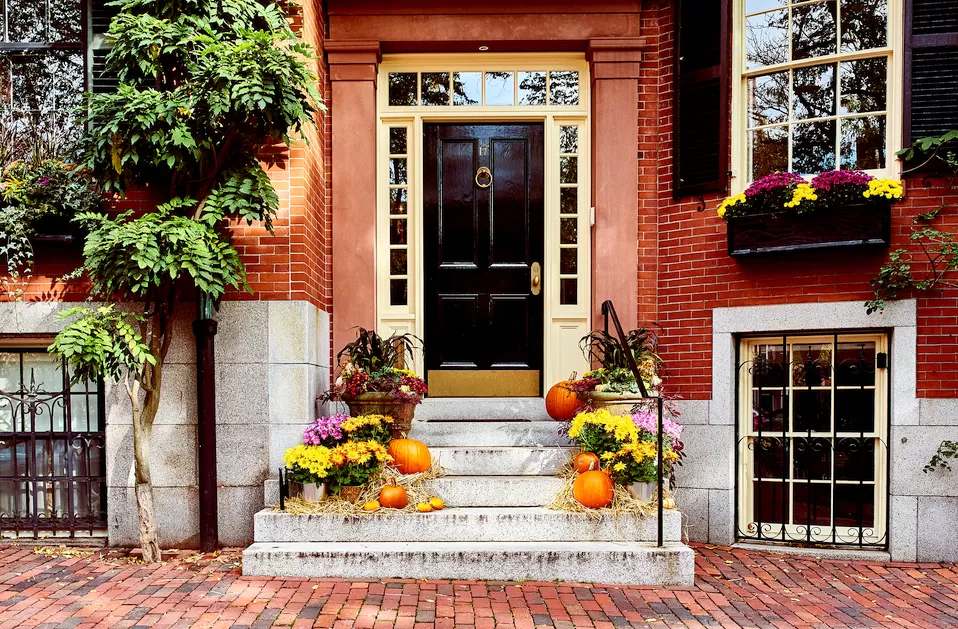
Inflation is a hot topic at the moment in the world of economics. Prices are lifting on all sorts of items, but will the rise in your shopping mean house prices will go on the increase too? Keep reading to learn more about how inflation can impact the property market.
Takeaway
Inflation can cause property prices to increase as long as there continues to be confidence in the housing market. But as soon as public confidence in the market reduces or disappears, inflation will not be enough to keep prices rising.
The Inflation Problem
Inflation is an economic phenomenon that occurs when the overall price level of goods and services in an economy increases over time. It can be a problem for new buyers because it erodes the purchasing power of their money.
Inflation can make it harder for new buyers to enter the housing market because it can cause the price of homes to increase faster than their income or savings.
This is because the cost of building and maintaining houses, as well as the cost of materials and labour, can also increase due to inflation. House builders need to make a healthy profit on the sale of new build homes, and with higher material and labour costs this can cause asking prices on homes to rise.
When the price of new build homes rises, the house price of existing homes will also rise in line with this.
Higher home prices have mixed effects for people. For new potential buyers, it can lead to a situation where buyers are unable to afford the homes that they want to purchase, or they may need to take on larger mortgages in order to cover the higher costs. But for existing home owners rising prices make them feel wealthy and happier. For people who are soon to retire and move to a smaller home, higher prices let them take money off the table when they sell their larger home.
Does Inflation Always Increase House Prices?
Sometimes high inflation can actually lead to a decrease in the price of houses.
Here are some examples of how this can happen:
High inflation is never a good feeling. When people hear negative headlines on the news, their first concern is about their job security. And this may make them hesitant to take on a new commitment to buy a home.
Inflation can also impact the price of houses indirectly through its impact on interest rates. If the rate of inflation is high, the Bank of England may need to increase interest rates in order to bring it down. Higher interest rates mean monthly mortgage payments increase, and this can make it more expensive for buyers to borrow money to purchase a house. The end result is the dropping demand for houses leads to a decrease in the price.
How Has Inflation Impacted UK House Prices
In the UK the rate of inflation has generally been relatively stable over the last 50 year. The average rate over this period has been hovering around 4% per year. However, there have been periods of both high and low inflation, and these fluctuations have had an impact on the price of houses in the UK.
High Inflation
In the 1970s and 1980s, the UK experienced high rates of inflation, with the annual rate going as high as 25% in 1975. Interestingly, during this time the price of houses in the UK also increased significantly. In 1972 alone the average house price shot up 42%!
Back to Normal
In the 1990s the rate of inflation in the UK began to decline, and it’s remained relatively low since then, averaging around 2% per year. And with this movement, house prices have risen on a steady trend since.
Although low inflation has helped with combined with other factors such as an increase in the availability of mortgage products and a strong economy, contributed to a boom in the housing market in the UK. The price of houses increased significantly, and the rate of homeownership in the UK also increased.
House Price Growth
£4,200
6.8% house price growth during the year
£20,900
20.0% house price growth during the year
£58,000
2.9% house price growth during the year
What else can impact house prices?
Mortgage Availability
In the 70s and 80s the availability of mortgage products in the UK was relatively limited. Many people who wanted to buy a house had to save up a large deposit and secure a mortgage with a high interest rate. This made it difficult for many people (particularly first-time buyers) to afford to buy a house.
In the 90s there was an explosion in mortgage products coming to the UK. The market has developed along the way and now included fixed rate and interest-only mortgages. These products made it easier for people to borrow money to buy a house, and the rate of homeownership in the UK increased as a result.
This boom period continued well into the 2000s, until the financial crisis of 2007 hit. Many lenders tightened their lending criteria, making it harder for people to secure a mortgage.
Since the financial crisis, the availability of mortgage products in the UK has recovered back. The introduction of the Help to Buy scheme in 2013, which provides government-backed loans to help people buy a home, has made it easier for some people to afford a mortgage.
Final Thoughts
So the relationship between inflation and the price of houses in the UK has been complex over the last 50 years. Periods of high inflation have generally led to an increase in the price of houses, while periods of low inflation have generally had a stabilizing effect on the housing market. However, other factors such as economic conditions and the availability of mortgage products have also played a role in determining the price of houses in the UK.
